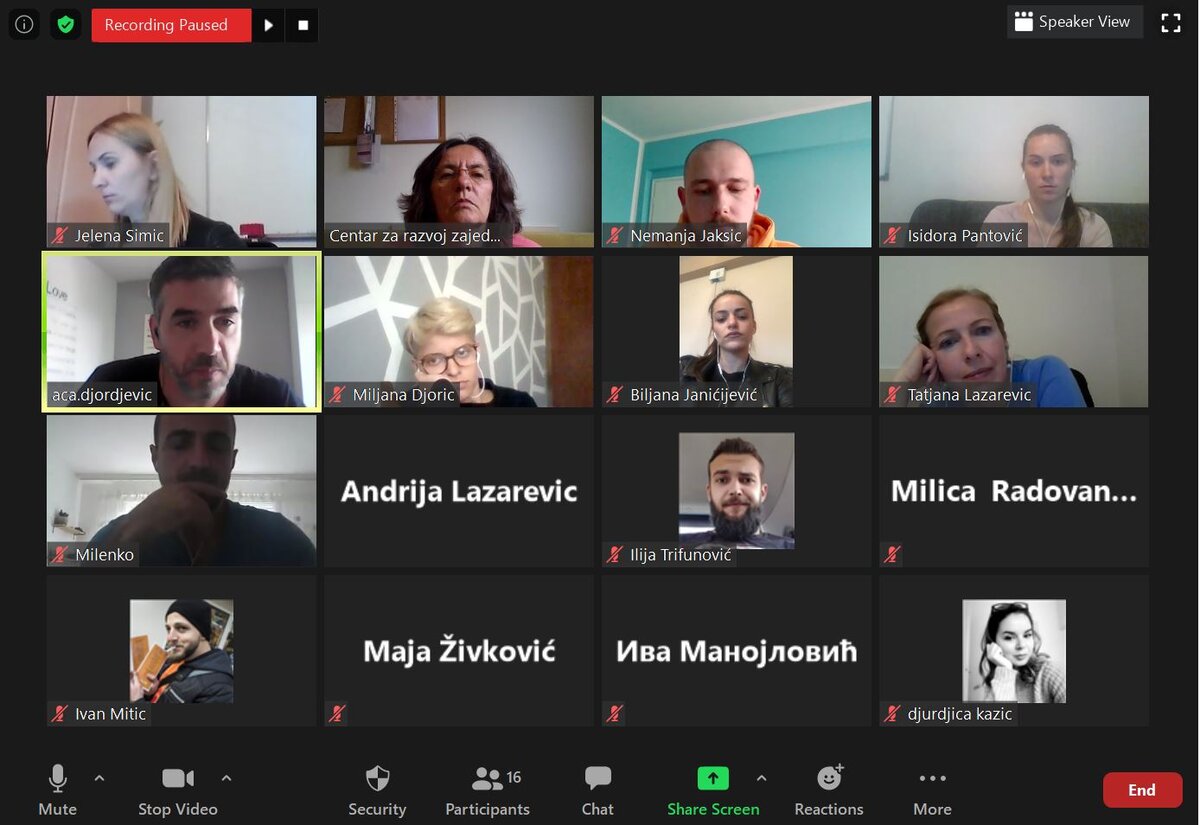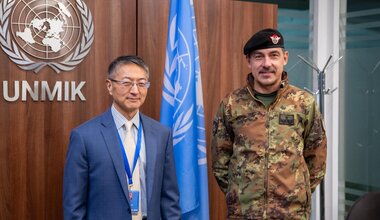Journalists and audience must jointly fight for a better media says multiethnic media campaign
Misinformation damages quality of life.
This was just one key joint message of a media literacy campaign spearheaded by Kosovo-Albanian and Kosovo-Serbian journalists who came together to amplify the messages.
Over the past five months the Centre for Communities’ Development and KoSSev portal, supported by UNMIK, created and shared 18 short bilingual video messages calling on the media sector to better serve the public interest and build trust among communities in Kosovo.
As part of the campaign, short two-day courses on the ethics of journalism and media literacy were prepared for Albanian- and Serbian-language journalism students.
“To change the bad image of journalists, we need hard work more than we need courage. Those who do their job with love and clear conscience, do not see it as a proof of courage, but as their duty,” said BIRN Serbia journalist Aleksandar Djordjevic, who was one of the trainers and designers of the media literacy curriculum for 25 multiethnic journalism students.
In total, journalists and editors of 12 different media outlets participated in the campaign. They collectively called for integrity, responsibility and diligence in reporting, but also demanded respect from institutions and political representatives, as part of the OpisMEDIJavanje (‘learning about media literacy’) campaign.
In journalism, building trust takes time, but can be lost overnight
The media sector faces a growing threat from social media networks, where indiscriminate information is shared faster now than ever before - damaging the reputation of journalism in the process.
Former BBC correspondent and Independent Media Commission (IMC) member Violeta Hyseni Kelmendi, who also designed the training curriculum alongside Djordjevic, encouraged members of the public to report any violations of the Commission’s Code of Ethics to the IMC.
She said while there was an onus on journalists to fight disinformation and political messaging, media consumers could also join the fight by learning how to recognise bad journalism.
“If a media outlet disrupts the privacy of a citizen or goes against other points of the Code of Ethics, including publishing fake news, the use of hate speech or inappropriate language, citizens should react and file a complaint with the competent bodies,” she said.
Due to the pandemic of SARS-CoV-2, two trainings on media literacy – one in Albanian and one in Serbian - were organized via the online platform Zoom. Topics discussed included the regulatory framework governing media, regulation – and lack of regulation – of the media, the role of the journalists’ associations and how to identify and fight against fake news.

The 12 outlets who participated in the video campaign include: FoNet, Insajder, Radio Gorazdevac, Raskrikavanje, Gracanica Online, BIRN Kosovo, Crno beli svet, WDR, Center for Investigative Journalism of Serbia, Klan Kosova, N1, BIRN Serbia, RTK Plus, Independent Media Commission in Kosovo and KoSSev
The campaign continues on KoSSev’s YouTube channel and webpage.
 UN
UN United Nations Peacekeeping
United Nations Peacekeeping





